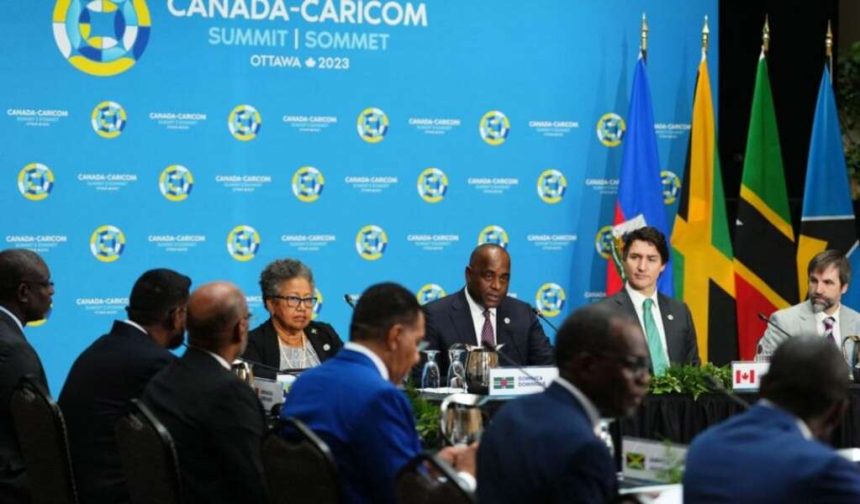The first-ever Canada-Caribbean Community (Caricom) summit got underway on Wednesday in Ottawa, Canada with the launch of the Caricom-Canada Strategic Partnership intended to deepen and strengthen the existing relationships between the two regions.
Canada’s Prime Minister Justin Trudeau said that the new initiative “will help us tackle urgent challenges together, creating good jobs, ending poverty, growing the middle class, making life more affordable, fighting climate change, protecting the environment…and building of course a secure peaceful hemisphere and a peaceful world.
“Today we are bringing our relationship and our friendship to the next level,” he added.
Dominica’s Prime Minister Roosevelt Skerrit, who is also the chairman of the 15-member regional integration movement, said as “we navigate the new frontier” in the Caricom-Canada partnership, it is worth remembering “our shared priorities are not mere ideals.
“They are the fundamental building blocks for a future we will collectively shape,” he said, adding that Caricom is looking forward to working together “to build a more resilient, prosperous, sustainable and secure future for our peoples”.
He said the region welcomes the Caricom-Canada Strategic Partnership, saying it will allow for institutionalised and regular dialogue at various levels.
“It will facilitate the implementation of joint actions, decisions and agreements on specific thematic priorities including health, environment, defence trade development and finance,” Skerrit added.
The Caricom chairman said that the summit’s theme “Strategic Partners for a Resilient Future” is of particular importance in an era of uncertainty “we seek to deliver tangible results to meet our present needs and that of generations to come.”
The two-day summit will discuss a wide range of issues including climate change and resilience, access to finance and global financial architecture reform, Haiti, regional security, as well as trade and investment.
Trudeau said that his administration would continue to play a meaningful role in Haiti, where criminal gangs have destabilised the French-speaking country.
“Canada appreciates the leading role played by Caricom in promoting inclusive political dialogue in Haiti. We will continue to work together with you to put forward Haitian led solutions, including in the case of global international intervention,” he added.
The United Nations Security Council has approved a resolution allowing for an international multi-national military force into Haiti following a request by Prime Minister Dr Ariel Henry for assistance in restoring peace and stability in his country.
The force will be led by Kenya.
Skerrit said more than ever before “Haiti needs us” and it is imperative “to do what we must for the people of Haiti and to provide so many…the hope that there is a brighter future for them.
“We stand as a Caricom to lead this process to ensure that we can provide for the people of Haiti,” Skerrit added.










